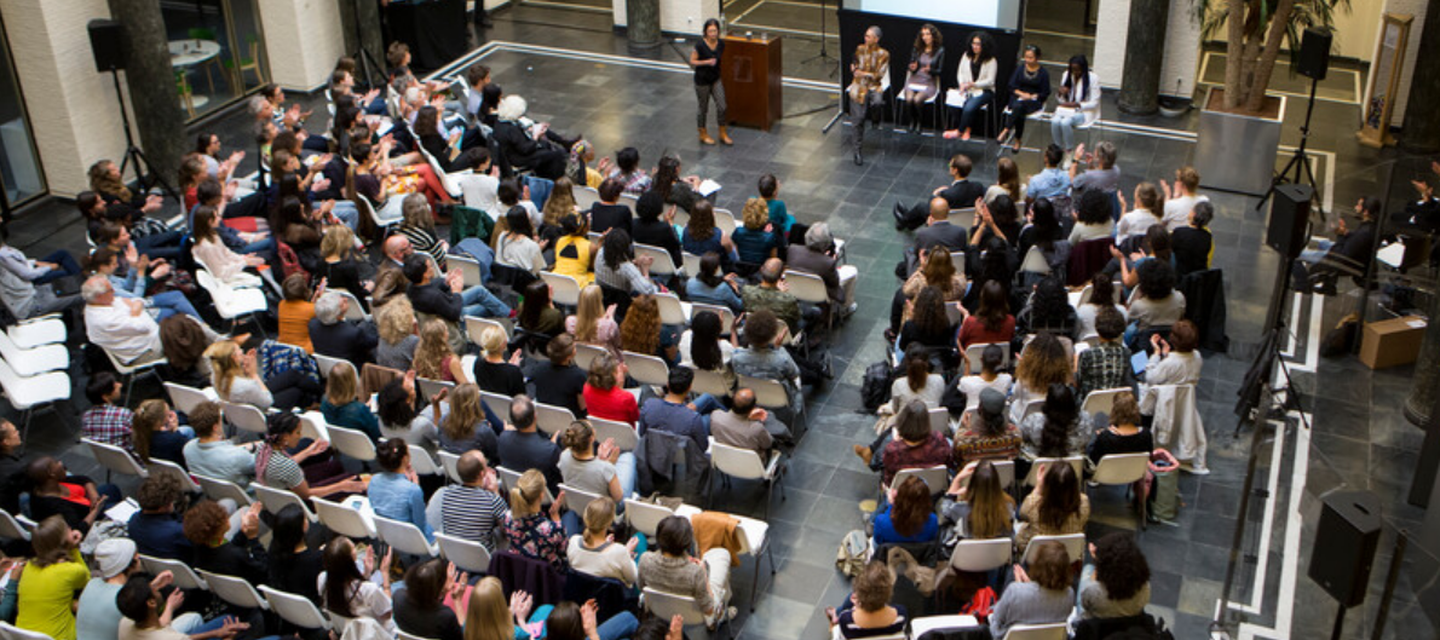
Exploring Discourses on Feminism and Woke-ism
Both within and outside of academia, two umbrella terms cause much debate and stir emotions: so-called “woke-ism” and “cancel culture.” Importantly, many a heated discussion echoes earlier ones — going back to the early twentieth century. What do histories of social emancipation tell us about the use and abuse of these concepts? How does “woke” fit into an academic tradition of intergenerational collaboration that furthers progress in research and education?
The umbrella term ‘woke’ refers to a general trend to examine and hold accountable science, culture and politics for their failing to increase social justice or worse, their contribution to ongoing social injustices. Both within and outside of academia, concerns are raised about so-called “woke-ism” and “cancel culture.” “Cancel culture”—canceling public persons, places or things based on alleged offensive behavior or transgression of norms—is often named in one breath together with “woke-ism.” In current public debates, some argue that both concepts are threatening the free exchange and discussion of ideas within the university. Yet such discussions about the role of values and norms in higher education and academic research are not new. On the contrary, it makes sense to consider universities as remarkable intergenerational collaborative spaces for the production and dissemination of knowledge in which such disputes are relatively normal. Moreover, universities and academia more generally are characterized by a tension between conservatism—represented by peer review, for example—and progress and creativity. During this event, UvA’s Central Diversity Office invites us to reflect on this connection between the nature of the university and current debates.
On Diversity Day, several panelists will share their different perspectives on these issues, opening a discussion with the audience, moderated by Machiel Keestra, philosopher and Central Diversity Officer of the UvA.
About the speakers
Renée Römkens is professor in Gender Based Violence at the UvA and was director of Atria, knowledge institute on gender equality and women’s history.
Alana Helberg-Proctor focuses on ‘race’ and ethnicity in relation to health and health science. Currently, she is a post-doc researcher at KU Leuven, and by January 2023 she will be a senior assistant professor at the UvA.
Laurens Buijs teaches at Interdisciplinary Social Sciences in gender and sexuality studies and science studies at the UvA.
Babeth Fonchie Fotchind is a jurist and poet. She regularly performs readings on stages and festivals and has published her work in Kluger Hans, De Revisor, De Groene Amsterdammer, DW B, De Gids, and Elle, amongst others. She was the in-house poet of the online magazine Lilith Mag and was selected for the writing residency of deBuren and the Slow Writing Lab of het Nederlands Letterenfonds. Her poetry collection Plooi was published in June 2022 by Uitgeverij De Geus.
:rgb(-15)

:rgb(-25)
:rgb(8)
